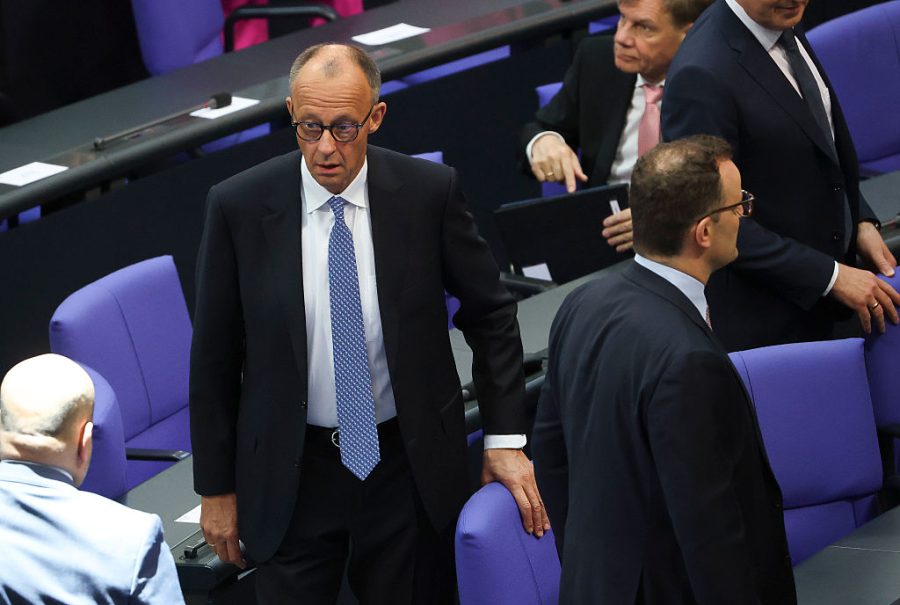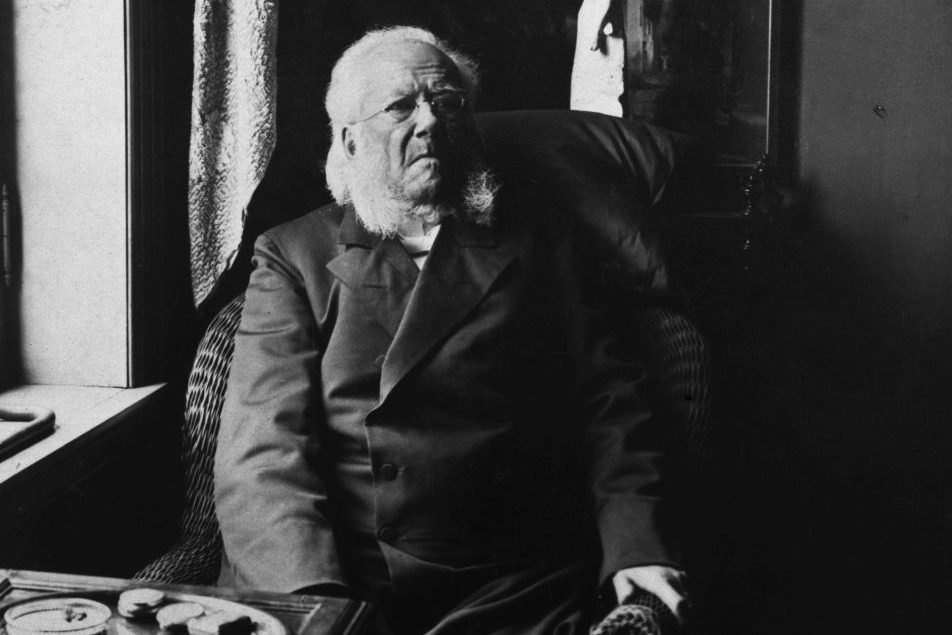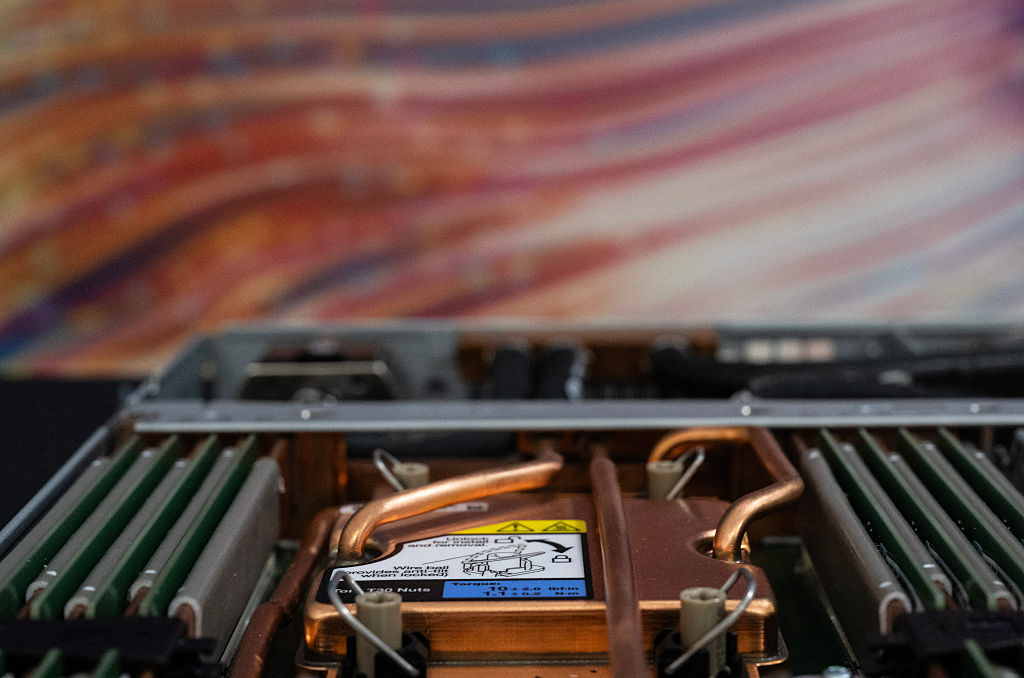Just when he thought he was home and dry, Friedrich Merz has fallen at the final hurdle to become Germany’s next chancellor. At a vote in the Bundestag this morning that many thought would be a formality, the CDU leader fell short of the votes needed to confirm him as the country’s new leader by six ballots, plunging Berlin into fresh political crisis.
Never before in Germany’s post-war history has a chancellor-in-waiting failed to get through the first round of Bundestag voting to elect a new leader. While 310 MPs voted in favor of Merz becoming chancellor, 307 voted against him. Damningly, this means that of the 328 MPs who form the “grand coalition” Merz has cobbled together with the liberal SPD party, not all will have voted to make him chancellor. For now, the outgoing chancellor Olaf Scholz remains in power.
Merz will get another chance to put himself forward as a candidate, with that vote due to take place this afternoon. According to Germany’s constitutional law, the Bundestag now has 14 days to elect a chancellor through an absolute majority of at least 316 votes. There can be any number of votes – and critically, any number of candidates to challenge Merz in the vote. If no chancellor is chosen in those two weeks, then only a basic majority – whichever candidate receives the most votes – is needed to win. If matters get this far, the German president retains the right to call fresh elections instead.
In the immediate aftermath of the vote, confusion and horror seem to have gripped the Bundestag. The blame game over who is responsible for voting against Merz has already begun, with the SPD claiming full support for their coalition partner’s leader. “You can rely on us,” the party leader Lars Klingbeil said. Meanwhile, Germany’s stockmarket index DAX slipped into the red, falling nearly 2 percent since opening this morning. There is a certain irony that this fresh crisis has happened six months to the day since Scholz’s own traffic light coalition collapsed in spectacular fashion, triggering the political crisis that has led to today’s events.
For an election winner who has yet to even become leader of the country, Merz has had a uniquely tumultuous run-up to this vote. Even before his party’s victory in February’s federal election, he had managed to polarize many potential parliamentary allies. Most notably, at the end of January, he decided to partner with the far-right AfD – just last week designated as an extremist party by Germany’s intelligence services – to get a controversial vote on migration through the Bundestag, triggering cries of horror that he was dismantling the “firewall” which prevented any collaboration with the far right in parliament.
Following his victory in February, he brokered a weak coalition agreement that conceded to many of the SPD’s positions – including on migration, net zero, defense spending and the budget – and drew ire from Merz’s own party. Furiously attempting to deny having damaged the firewall against the AfD, the CDU leader then spent a lot of political capital over the spring to bring together a sitting of the old pre-election Bundestag to pass a spending package that the far-right party had the power to block if given the chance.
It’s safe to say then, that even before taking the reins of power, Merz has managed to squander much political goodwill towards him. Now, he is paying the price.
Perhaps unsurprisingly, the only party who is happy with today’s chaos is the AfD. Beaming while speaking to journalists after the vote, the party’s co-leader and candidate for chancellor Alice Weidel called for fresh elections, saying Merz should step aside. “The election fraudster and liar Friedrich Merz failed in the first round,” she said, adding – perhaps not unfairly – that this was a sign of the future government’s instability. Her party co-leader Tino Chruppalla called today a “good day”.
Merz still has a chance of becoming Germany’s next chancellor, but today’s chaos presents him with a serious credibility problem. When he won the election in February, there was consensus among opponents of the AfD that, during his tenure as chancellor, Merz would – overarchingly – have just one job: killing the far-right party’s popularity by maintaining trust and stability in mainstream politics. He appears to have failed at this before he has even got going.
The SPD and CDU have won their case for a new ballot today. They argued there is no time to lose, not least because, embarrassingly, an inaugural victory lap around Europe had already been planned for Merz, with visits to France and Poland in the diary for tomorrow.
Merz had also been hoping to be sworn in as Germany’s chancellor in time to lead the country in Thursday’s commemorations of VE Day. Rubbing salt in the wound of today’s embarrassment, this honor will now fall to Scholz. But, in the face of the problem Merz now faces of how to control a fragile – clearly not fully supportive – coalition, and govern Germany if he does make it into the chancellery, this is the least of his troubles.

























